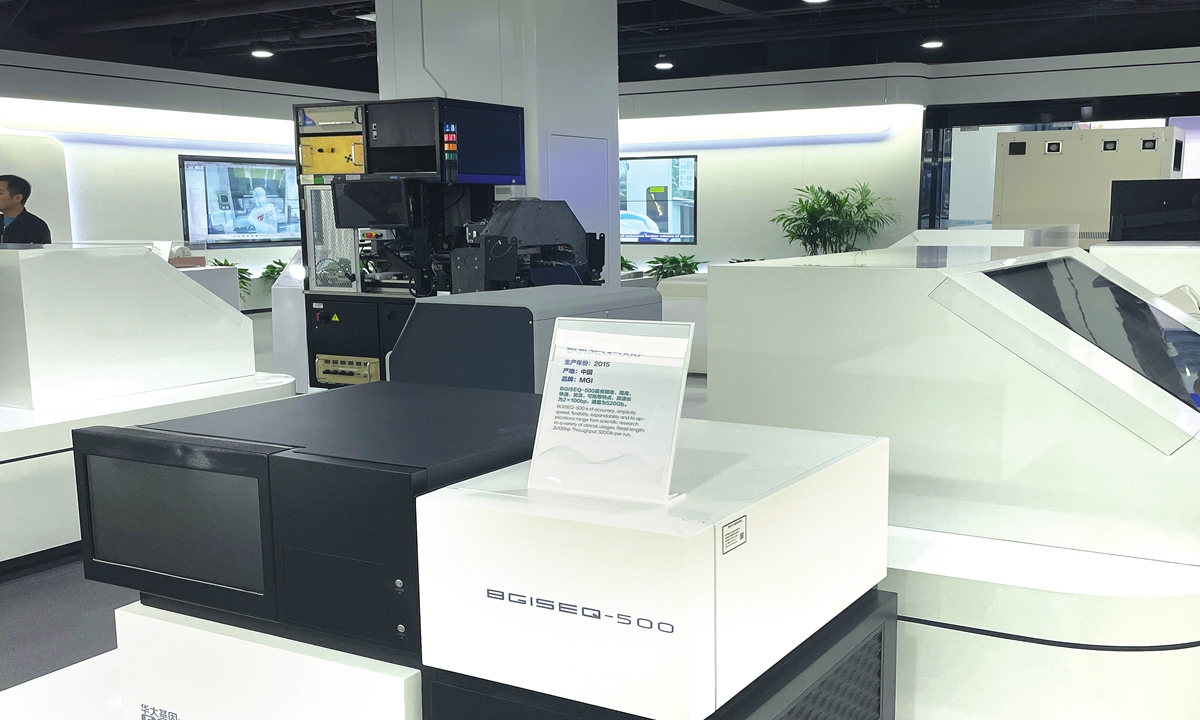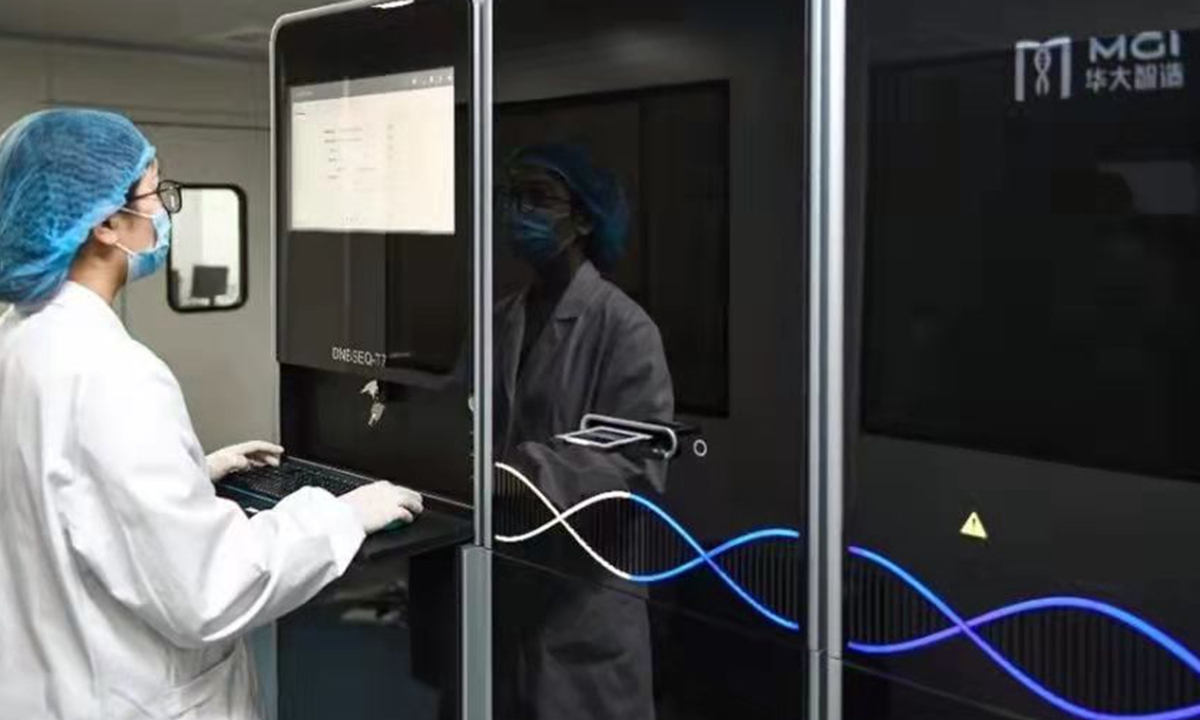
The BGISEQ-500 gene sequencer Photo: Shen Weiduo/Global Times

MGI's Ultra-high Throughput Sequencer DNBSEQ-T7 Photo: Courtesy of MGI
MGI Tech, a subsidiary of Shenzhen-based genomics giant BGI Group, introduced a series of performance upgrades for its domestically developed gene sequencing platforms during an industry conference over the weekend, representing the latest progress by Chinese firms in an industry that's once been dominated by foreign brands.
These upgraded features further reduce the sequencing mismatch rate, duplicate rate and sequencing cost of a single sample. In addition, it will further improve the efficiency of utilizing data, the precision and sensitivity of variation detection, MGI said.
The new product launch comes as a nationwide localization effort across key industries aimed at shaking up foreign reliance amid a prolonged China-US trade conflict and Washington's non-stop crackdown on Chinese firms.
The trend is also expanding into more industries such as gene sequencing, since genetic information, considered as a national strategic resource, is extremely valuable and critical for the reproduction and health of lives.
As a core tool for reading and analyzing genetic information, gene sequencer, the "key device" as a component of the industrial chain, and provides underlying support for research applications in multiple fields such as genetic testing, gene editing and gene synthesis.
Gene sequencer has entered the public spotlight as it was widely used amid the COVID-19 pandemic to detect the virus variants.
It is estimated that by 2030, the global gene sequencer and consumables market will reach a market size of $24.58 billion, and the Chinese gene sequencer and consumables market will amount to 30.39 billion yuan ($4.7 billion) in output value, according to an industry report.
Homegrown focusAccording to MGI, through years of ongoing localization efforts, it has achieved a breakthrough in catching up with industry peers, rivaling with foreign giants such as US giants Illumina. It's now grown into one of the three companies worldwide with the ability to mass-produce clinical high-throughput sequencers.
One MGI product set to be upgraded is the firm's DNBSEQ-T7, has been the highest throughput sequencer to date since its release in 2018, and has achieved a number of breakthroughs including being the first 4-chip sequencing platform, completing PE150 at full load between 24-30 hours, generating 6Tb of data per day, and completing up to 60 whole human genomes per day.
"While the localization process is indeed challenging," MGI said in a statement it sent to the Global Times. "On the road of research and development, the technical difficulties that need to be overcome across various engineering fields from optics, mechanics, electricity, liquids, biochemistry, to semiconductors."
The firm did not disclose the exact localization rate of its device, but insiders told the Global Times that most crucial components are produced domestically, and it's still striving to increasing localization with combined efforts from industrial chain partners.
Facing external challenges, MGI still needs to be more self-dependent in the supply chains for access to upstream core components, in a bid to ensure the security of the supply chain and technology, insiders said.
Facing global challenges MGI told the Global Times that over the past many years of development, its business has been expanded to cover more than 70 countries and regions on six continents, and has established scientific research, production bases and training and after-sales service centers in many countries and regions.
"Overseas revenue of our gene sequencers businesses have been gradually improving," the firm said.
Nevertheless, challenges for its expansion are also mounting amid US attempts to contain China's advanced manufacturing sector, under the guise of protecting its national security, though no evidence has been found so far.
A Reuters report claimed in July that a prenatal test taken by millions of pregnant women globally was developed by BGI Group in collaboration with the Chinese military and is being used by the firm to collect genetic data. Reuters said that "the US sees BGI's efforts to collect and analyze human gene data as a national security threat."
BGI resolutely denied the reports, saying it has never provided data from its non-invasive prenatal test (NIPT) to Chinese authorities and the prenatal tests were not developed in partnership with China's military, and it strictly adheres to national and international requirements on data privacy. The company was responding to Reuters' report which the company labeled "factually incorrect."
An industry player, who spoke on condition of anonymity, called the report as "US' normal tactic of smearing a Chinese firm that is a rival to American companies," while cautioned that the complicated global situation has indeed increased the barrier for Chinese firms in the industry to expand businesses overseas.
"Governments are paying greater attention to data privacy issues, especially in the highly-sensitive gene sector," the individual told the Global Times, adding that now the widely-adopted practice is to leave the data at local place, and industry players are striving to clarify misunderstandings to customers worldwide.
"While the gene industry is a sector built on global cooperation, we call for more openness and exchanges between different nations,"said the individual.





